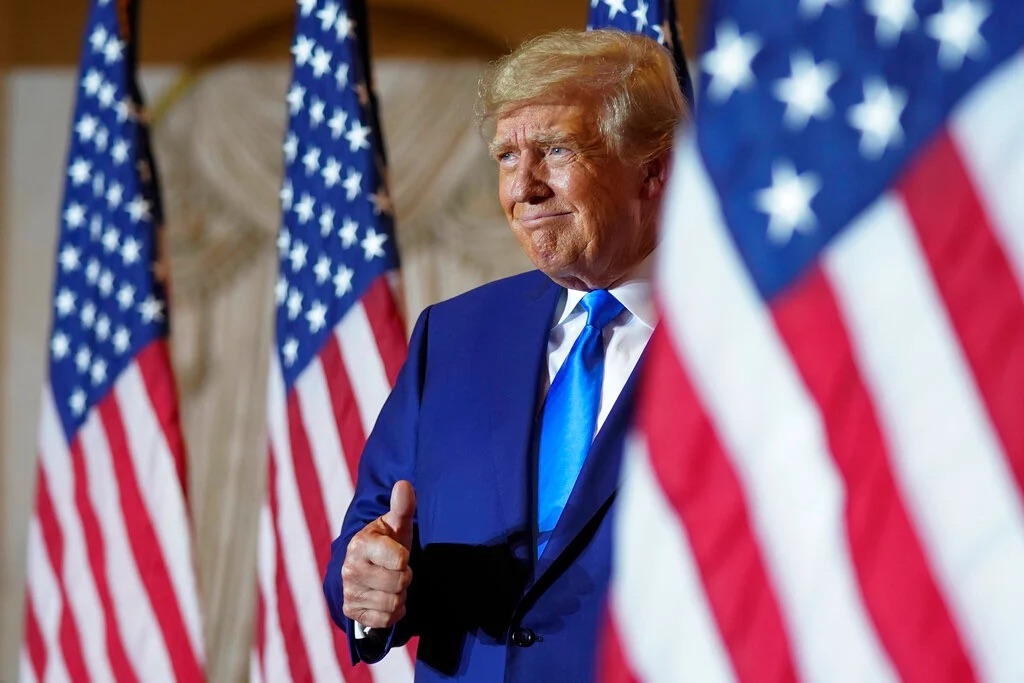The 2024 United States presidential election has marked a pivotal turn for the cryptocurrency industry, with Donald Trump’s reelection heralding a potential shift towards more favorable crypto regulations. The election saw Trump returning to the White House and the Republican Party gaining control of both the Senate and possibly the House of Representatives, stirring significant optimism among crypto advocates.
In response to the election results, the price of Bitcoin soared to over $75,000 on November 6, fueled by expectations of regulatory clarity and changes at the helm of the Securities and Exchange Commission (SEC). The market’s positive reaction reflects the anticipation of a more crypto-friendly environment under the Republican majority and Trump’s administration.
Senate Changes and Pro-Crypto Voices
The election also highlighted key races that have implications for crypto policy. Notably, in Ohio, pro-crypto Republican Bernie Moreno won against incumbent Senator Sherrod Brown, a known crypto skeptic. This victory is seen as a direct endorsement of a more open stance towards digital assets.
Coinbase CEO Brian Armstrong pointed out that over 250 pro-crypto candidates securing seats in the House could signal the onset of “the most pro-crypto Congress ever.” Armstrong expressed his views on the transformative potential of these election outcomes for economic policies and regulatory approaches towards cryptocurrencies.
With the Republican Party’s control in the Senate and a supportive president, the U.S. is anticipated to adopt a regulatory framework that could foster growth and innovation within the crypto space. This includes the possibility of Trump fulfilling his promise to replace SEC Chair Gary Gensler, whom he has criticized for stringent regulatory measures against crypto businesses.
Under Gensler’s oversight, the SEC launched enforcement actions against major crypto platforms like Coinbase and Uniswap, which have been contentious within the crypto community. Trump’s administration may halt these aggressive enforcement practices, aiming instead for rule-making that supports technological innovation and economic freedom.
On November 6, Paul Grewal, Coinbase’s chief legal officer, echoed Armstrong’s sentiments by urging the SEC to pivot from litigation to creating constructive crypto regulations. Trump’s commitment to dismantle what he termed the Biden-Harris administration’s “anti-crypto crusade” underscores a broader political will to integrate crypto into America’s economic framework positively.
Anticipated Developments in Crypto Legislation
As Trump prepares to take office, the cryptocurrency sector remains watchful of his administration’s moves to actualize the campaign promises. The potential early dismissal of Gary Gensler could catalyze a new era of crypto regulation that aligns with Trump’s broader economic policies aimed at reinforcing market freedom and reducing governmental overreach.
As the dust settles post-election, the intersection of politics and cryptocurrency has never been more pronounced. The Republican sweep could indeed be a boon for the crypto industry, given the party’s general preference for deregulation. However, the true impact of these political shifts will depend on how effectively the incoming administration can navigate the complex landscape of digital asset regulation. The community’s high hopes hinge on tangible policy shifts and legislative actions that could either unlock the potential of cryptocurrencies or expose them to new challenges. As we step into a period of Republican dominance, the trajectory for cryptocurrencies looks cautiously optimistic, with a watchful eye on the unfolding regulatory and political dynamics that will shape the sector’s future.











